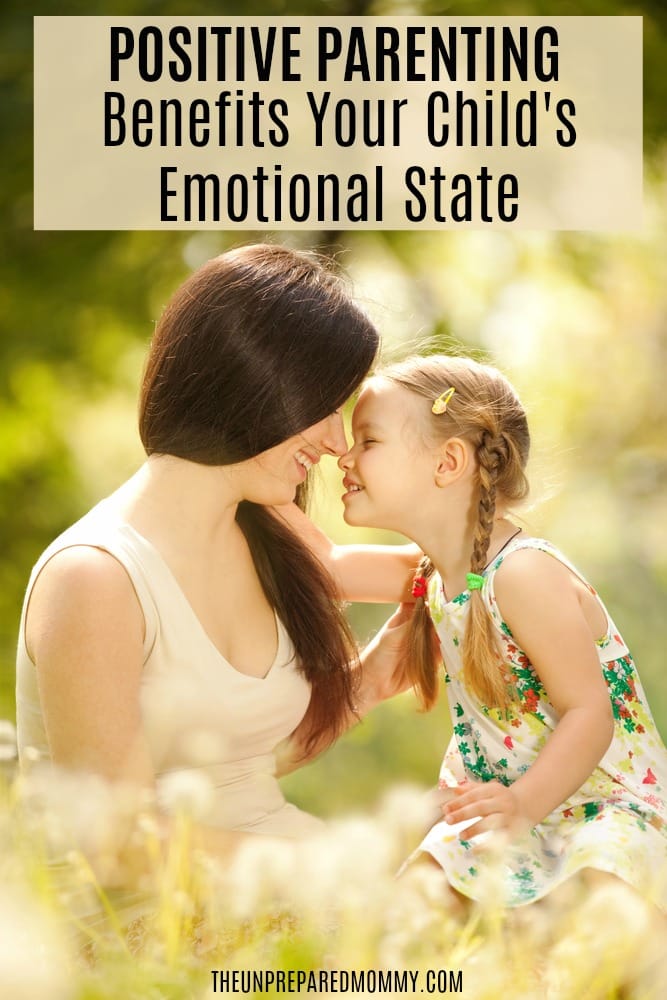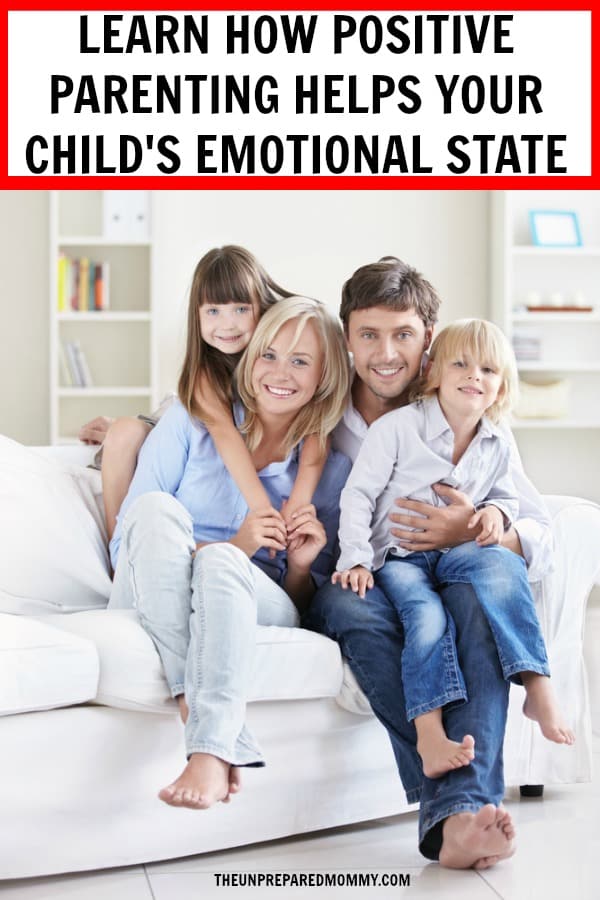As parents, it can be all too easy to let the stress we deal with leak over into how we parent our children. When children clue in to their parents’ stress – and kids always do pick up in whatever stress is going on – they can experience the kind of stress that’s on-going. It’s bad enough dealing with this as a parent. But for a child, what this stress does is it causes changes in the brain that can alter their ability to learn. At a young age, children learn behavioral techniques from their environment. Positive parenting benefits their brain chemistry and so much more.
If they live in the type of environment where they have to look out for themselves, then they learn that the world is not kind. They believe that they’re the only ones who can look out for themselves. As a result of this, they can develop anxiety and take on the air of always watching their own back. This development, in turn, makes them not learn as well as other children do.

When a child is not subject to positive parenting benefits, they tend to score lower on tests when in school. Their attention span is not as great as that of their peers.
They don’t pick up on new skills as easily as other children. More often than not, their social skills are not at the same level as that of other kids their age. The emotional well being of a child can benefit from positive parenting as soon as he is born.
With reassuring hugs, singing to the baby and making sure his needs are met. Kids learn their behavior from the time that they’re born because they learn their behavior from the way that you parent.
If you spend the time supporting your child’s positive behavior with a positive response in return, you help create happier, more intelligent children. On the other hand, if you don’t give your child the reinforcement for positive behavior, then your child will learn to use negative actions and words to get what he needs or wants from you.
Positive Parenting Benefits and the Brain
Much has been said about being positive versus being negative. You know that being positive can help deal with stress and makes life seem a little easier. But taking that positive behavior and actions over into parenting can create a world of difference for your child, starting with his hippocampus.
You may not have even heard of it. The hippocampus isn’t very big or even that well known to many parents. This tiny section inside the brain, however, has a very big job to do.
It’s located on both sides of the brain and is an important factor in the development of a child’s intelligence. How large or small a child’s hippocampus is has a direct relation to how well his home life is and that’s where you, as the parent can really make a big difference in your child’s life.
Giving a child a home environment where there’s plenty of love is crucial to how your child will learn to develop his intelligence. When a child has an abundance of love and positive parenting, he feels free to explore his world and learn new things.
Not only does he feel safe enough to explore, but he recognizes that it’s encouraged by you. Studies that have been done on the hippocampus performed at the Washington University School of Medicine shows that children who experience a loving, positive parenting environment have a hippocampus that’s greater in size than children who don’t have this benefit.
Other studies conducted on the link between positive parenting and the hippocampus found that when children were exposed to positive parenting, they in turn would become more caring and more emotionally giving than children who didn’t have the benefit of this type of parenting.
The reason that the hippocampus is so important is because this is the part of the brain that lets children expand their intelligence level. The hippocampus is what allows the child to learn things.
It’s also the part of the brain that allows the child to retain what he has learned. Positive parenting benefits a child’s hippocampus because negative parenting can change a child’s brain chemistry.
What a negative parenting background does for a child is to create a domino effect. This short circuits a child’s ability to do well from childhood and on up into adulthood.
The Importance of Having Positive Parenting Skills
How do you respond to a toddler’s tantrums, a preschooler’s whining, a grade-schooler’s ego, and an adolescent’s quest for independence? Being able to respond positively to various emotional outbursts of your children is a valuable asset of any parent. Positive parenting skills can improve parent-child relationships and help develop a generation of responsible and empathetic individuals that are grounded on a set of morals and values.
Many parents will benefit from parenting skills in which positive training skills are discussed. We often think that parenting comes out naturally but fail to realize that experts are also doing their share of research and studies to learn the most effective parenting style. Experts’ findings prove the effectiveness of positive parenting skills not only in managing behavior problems but also in maintaining positive relationship within families.
The future is now
Today’s children are the future’s generation and how they are guided to become the individuals of tomorrow depends greatly on today’s positive parenting skills. Positive parenting helps arm children with the right attitudes and conflict resolution skills in order to deal with frustration and stress.
Positive parenting skills can be broad because each parent has different positive parenting practices they apply on their child. However, positive parenting skills may generally encompass discipline, encouragement, open communication, respect, and conflict/stress resolution.
An art of parenting
Positive parenting is an art that a parent learns and masters gradually. It is also for this reason that parents are encouraged to attend positive parenting skills training to obtain a concrete visualization of positive parenting. Many parents don’t realize that they are already exhibiting positive parenting skills but are not quick to recognize them.
For instance, praising a child for his accomplishment may be meaningful to him but how about a child’s failure? You can display positive parenting skills by simply praising a child for the effort he exerted in trying to accomplish something. Frustration and stress is as real in children as it is in adults so that parenting should help lay the foundation for conflict management.
Praises and encouragements build a child’s self-esteem and a healthy self-esteem is instrumental in how a child creates resolutions up front. A child with high self-esteem is quick to build solutions but understands that he/she has limitations. Positive parenting is nurturing a child’s self-esteem knowing that it is an essential component in a person’s personality.
Positive parenting skills have been proven to work magic in curbing behavior problems in children of all ages so that it’s not too late for any parent to learn about positive parenting.

Related posts:
Positive Parenting: The Best Approach to Raising Kids
The Long Term Effects of Positive Parenting

Leave a Reply